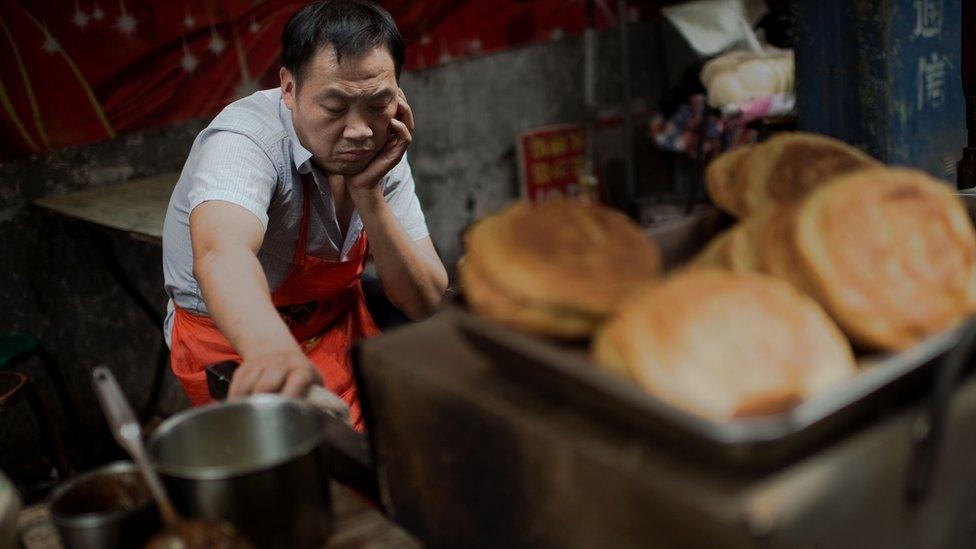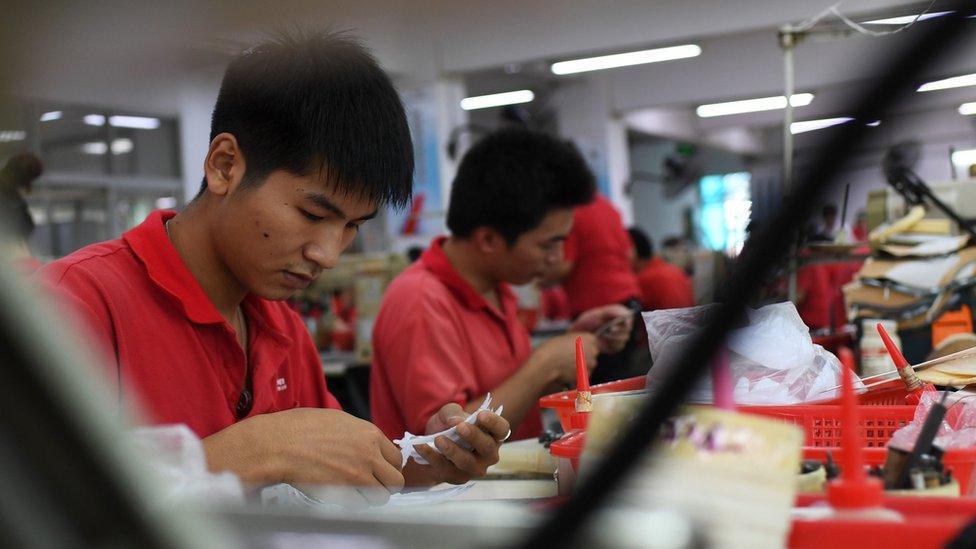China plenum: Looking for clues on China's economy
- Published

Food for thought? What comes out of China's Communist Party plenums is often limited.
China's top Communist party officials are in Beijing for a four-day, behind-closed-doors meeting this week.
The plenum kicks off a big year for China, building up to next year's party congress, a twice-a-decade event.
While this week's gathering is largely pre-scripted, a communiqué is usually released at the end of event - and that should help the outside world figure out which way China is headed.
Political considerations - especially party leadership, succession issues and a "code of conduct" for party cadres - are likely to dominate proceedings. But here are three things I'm watching for on the economic front:
Anti-corruption drive
A recent Pew poll, external showed that corrupt officials are the top concern of Chinese people. So the key theme of this meeting - discipline - is an issue close to the hearts of many in China.
Cracking down on corruption, both within the party and in business circles, has been key to President Xi Jinping's reform agenda. It's thought that more than a million officials have been punished in his anti-corruption drive over almost four years.
But critics say that arresting individuals is the easy bit and that President Xi has done little to get to the root of the problem. There have been no meaningful moves towards regulation or systems that allow whistle-blowing for example they argue.
Analysts say President Xi believes that the only way for him to realise his "China Dream" (his vision of China's economic and military rejuvenation) is if the Chinese Communist party remains disciplined, and graft-free. Of course, the anti-corruption drive has also had a knock-on effect on the economy: there's been less spending in provinces than in previous years because of fears that excessive wealth might bring with it unnecessary and unwanted attention.
State-owned enterprises
As Michael Clauss the German Ambassador to China wrote in a recent editorial in the South China Morning Post, external, "it is hard to hide…[the] disappointment" when it comes to opening up China to non-state competition.
State-owned enterprises dominate China's business landscape, and that makes it very difficult for other firms - both local and foreign - to compete.
China has consistently said it is cleaning up the so-called "zombie" firms but it has so far been unwilling or unable to shut down many of these bloated companies.

The new Chinese economic model puts less emphasis on traditional industries like manufacturing
Part of the reason is unemployment. The slowdown in the steel and iron sectors means we've already seen massive job losses, resulting in millions of migrant workers heading back to their villages. The Communist Party doesn't want to risk the social instability that may arise from widespread rural joblessness.
Are we still rebalancing?
Which brings us back to the whole rebalancing thesis which China started spouting a few years ago to explain its gradual, managed slowdown.
The idea was that China needed to rein in growth after years of double-digit GDP data. And it was going to be a controlled deceleration, as the economy shifted gears and changed focus to keep growing.
Under that vision, old pillars of the economy like manufacturing, exports and government spending become less central, with consumption and services having a greater emphasis. The problem though is that that's not what the data is showing.
While consumption is picking up - it's still largely debt that's helping to drive the economy forward, external. The central bank has already warned about high levels of credit, especially in the property market, as I've written about before.
All of these considerations will weigh heavily on the minds of China's leaders this week. And even though we're unlikely to hear what China's leaders really think about the shift in the economic focus, the communiqué released later this week might just give us some clues.
- Published27 September 2016
